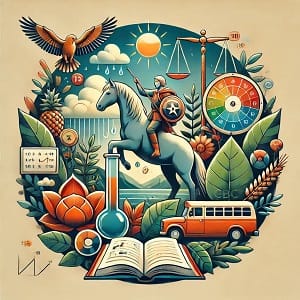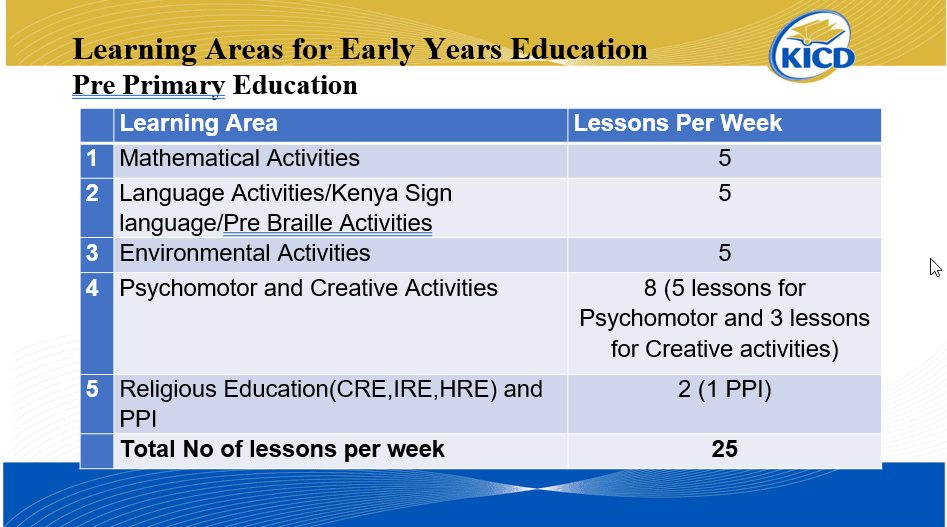CBC TRAINING OF GRADE 7 TEACHERS INDIGENOUS LANGAUGES
“Indigenous Languages Curriculum for Grade 7” is an invaluable resource designed for edu…

In the realm of early years education, a well-structured curriculum is essential for fostering holistic child development. The following outlines key learning areas for pre-primary education, as indicated in the recent guidelines from the Kenya Institute of Curriculum Development (KICD).

The structured approach to these learning areas ensures that children receive a balanced education that nurtures their cognitive, emotional, and social development. By incorporating a variety of activities, educators can cater to different learning styles and needs, ultimately preparing young learners for future academic success.
This curriculum reflects a commitment to creating an inclusive and comprehensive educational environment that supports the diverse needs of all children in Kenya.
Posted on by Elimu Assistant Team
“Indigenous Languages Curriculum for Grade 7” is an invaluable resource designed for edu…
Posted on by Elimu Assistant Team
Traditional String Instruments of Kenyan Communities Kenya is a land rich in cultural diversity, and…
Posted on by Elimu Assistant Team
The Grade 4 exams are a series of assessments designed to evaluate students’ understanding acr…
Posted on by Elimu Assistant Team
Step 1: Prepare a lesson Plan Complete Lesson Plan School Name: Bens GenderTeacher Name: Ms…
Posted on by Elimu Assistant Team
In today’s fast-paced educational landscape, teachers face immense pressure to deliver engaging and …
Posted on by Elimu Assistant Team
Exploring Learning Areas for Lower Primary Education (Grades 1-6) In the foundational years of educa…
Get in Touch!If you need any educational resources, feel free to reach out directly. I'm here to help!Name: Mr. Atika Email: nyamotima@yahoo.com Phone: 📞 0728 450 425Let’s empower your learning journey together!
Elimu Assistant
Access a wide range of academic resources, including KCSE past papers, mathematics, and chemistry materials to enhance your exam preparation. | WhatsApp! | Telegram! |
Elimuspace
Access a wealth of information, including job opportunities, news, and academic materials. Stay updated and connected with a community of followers. |Join Elimuspace Now!|